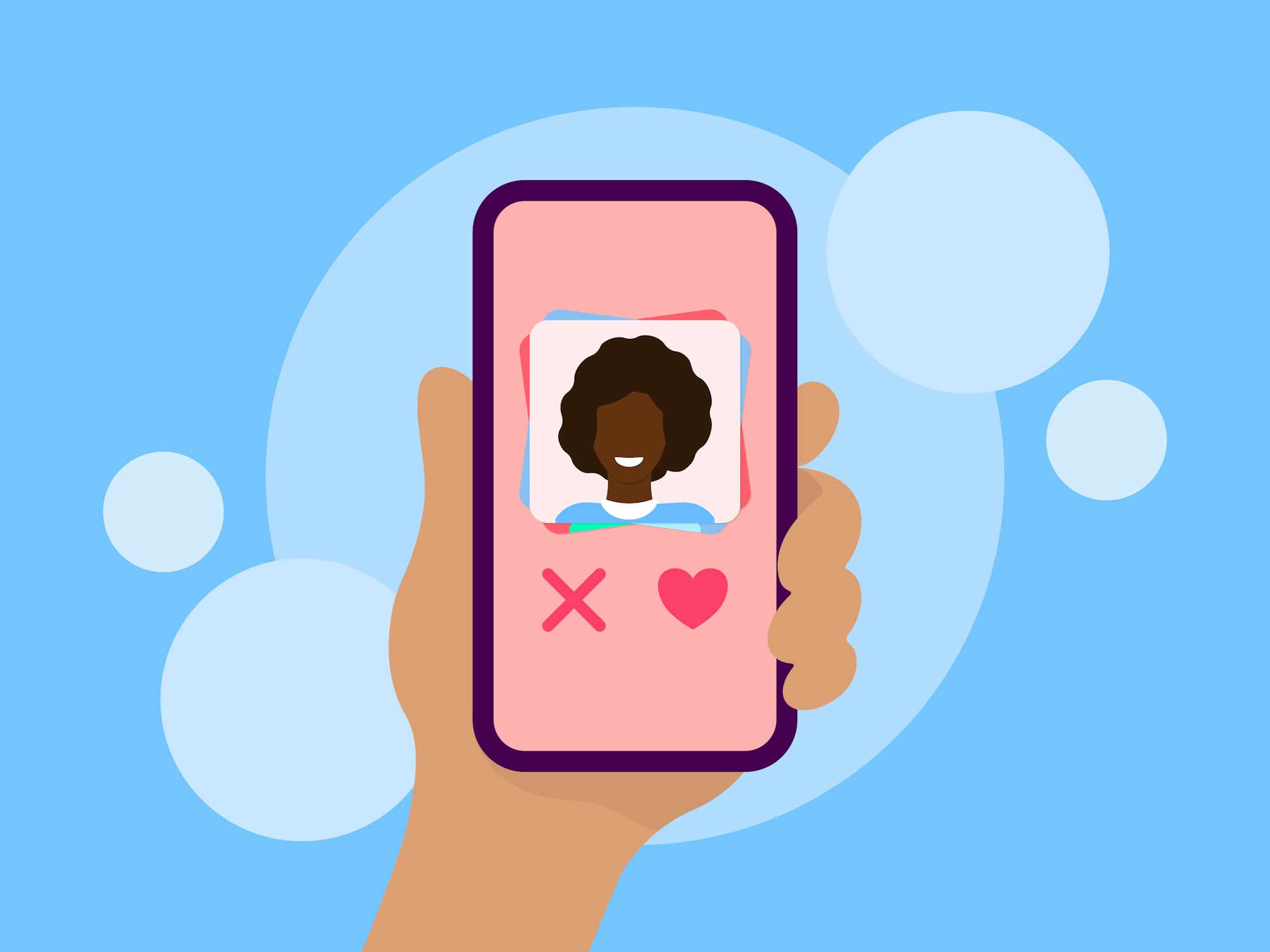In today’s fast-paced digital world, dating apps have become one of the most popular ways to meet potential partners. Yet, while these platforms have transformed the dating scene by making it easier to connect with others, many users—especially women—are quitting these apps out of frustration. The reasons go beyond just a lack of meaningful matches or the rise of “ghosting.” One recurring theme is that a significant number of men on dating apps seem to skip straight to innuendos, contributing to an uncomfortable environment. But what are the deeper reasons people are turning away from these platforms, and what can be done to improve the experience?

The Rise of Inappropriate Behavior
A common complaint, particularly among women, is the prevalence of inappropriate comments and sexual innuendos from male users. These behaviors range from suggestive jokes to outright sexual advances made shortly after a match. Many feel that dating apps, especially those that emphasize quick swiping, encourage a superficial approach to dating, where meaningful conversations take a backseat to instant gratification.
In the article from The Guardian, users share stories of how these interactions lead to disillusionment with the platforms. For many, this behavior isn’t isolated to a few bad apples—it seems widespread. While dating apps promote connection and compatibility, for some women, their experiences suggest that many men are primarily seeking casual encounters, often bypassing the respectful communication required for meaningful relationships.
Emotional Exhaustion and Burnout
Another key reason users are leaving dating apps is emotional exhaustion. Constantly filtering through profiles, engaging in brief conversations that lead nowhere, and managing the emotional rollercoaster of ghosting or rejection can take a toll on mental health. For many, the repetitive nature of swiping and chatting with no real connection leaves them feeling burned out. The idea that you’re always just another swipe away from meeting “the one” can create a cycle of endless searching, which can be mentally exhausting.
While these feelings aren’t limited to any one gender, women often bear a larger emotional burden due to the added stress of receiving inappropriate messages. This can create a toxic environment where users feel unsafe or uncomfortable, further contributing to dating app fatigue.
Lack of Authenticity and Trust
A major issue with online dating is the perceived lack of authenticity. It’s not just about people misrepresenting themselves in their profiles—there’s also a growing sense of mistrust about intentions. While some people are genuinely looking for meaningful relationships, others may be on the apps for validation, casual flings, or even dishonest purposes, such as scamming.
This atmosphere can make it hard to build genuine connections. Many users, particularly women, report feeling objectified by male users who seem to view dating apps as a way to quickly find hookups without putting in the effort for real conversations or relationships.
The Role of Algorithms and App Design
Dating app algorithms are another factor contributing to the frustrations users feel. Most dating apps use algorithms to suggest matches based on factors like location, age, and user activity. However, these algorithms often prioritize attractiveness and engagement (i.e., frequent swiping), which can push people into superficial interactions. Moreover, the swipe-right culture encourages a sense of abundance, which can make users more likely to treat potential matches as disposable, rather than as people to genuinely connect with.
The design of these apps can also perpetuate a competitive, gamified environment, where users feel the need to swipe quickly and often to get more matches, rather than investing time in meaningful conversations. This has led to an oversaturation of the market, where users feel more like they are shopping for a partner than engaging in authentic interactions.
Gender Imbalance and the Impact on Experiences
One aspect that is often overlooked is the gender imbalance on many dating platforms. Research shows that dating apps typically have more male users than female users, and this disparity can contribute to the problematic behaviors described. With men competing for the attention of fewer women, some may resort to bolder or more aggressive tactics, including inappropriate comments or sexual advances, as a way to stand out. Unfortunately, this only serves to alienate female users, creating a cycle that drives more women away from the platform.
Addressing the Issues: What Needs to Change?
While these problems may seem daunting, there are steps that dating apps and their users can take to improve the online dating experience:
- Stricter Moderation: Dating apps need to implement better moderation tools that can quickly identify and remove users who engage in inappropriate behavior. This includes clearer reporting systems and the use of AI to detect harmful language.
- Education on Respectful Communication: Dating platforms could offer educational resources on respectful and effective communication, particularly when engaging with potential romantic partners. Encouraging a shift in the culture away from quick swipes and instant gratification could lead to more meaningful connections.
- More Focus on Compatibility: Improving algorithms to prioritize compatibility over superficial qualities like physical appearance could help foster more genuine connections.
- Reducing Burnout: Dating apps could introduce features that encourage users to slow down and take breaks, rather than continuously swiping. This would reduce the mental fatigue that often accompanies prolonged use of these platforms.

Commonly Asked Questions (FAQs)
Q: Why do men often skip to inappropriate comments on dating apps?
A: The anonymity and fast-paced nature of dating apps can encourage some users to behave more impulsively or inappropriately. Many men might see these platforms as casual environments, leading to a lack of consideration for respectful communication. Additionally, the gender imbalance on these apps may pressure some men to make bold moves, even if they are unwelcome.
Q: Why do so many people feel burned out by dating apps?
A: Constantly swiping, starting conversations that go nowhere, and experiencing ghosting can lead to emotional exhaustion. Dating apps often promote a sense of infinite choice, but this can make users feel like they are endlessly searching without success, contributing to burnout.
Q: Are dating apps doing enough to prevent inappropriate behavior?
A: While some apps have introduced reporting tools and safety features, many users still feel that moderation isn’t strict enough. The rise of AI moderation tools is helping, but there’s still a lot of room for improvement in detecting and preventing inappropriate behavior in real-time.
Q: How can users have a more positive experience on dating apps?
A: To avoid burnout and frustration, users should set clear boundaries, take breaks when needed, and focus on meaningful conversations rather than quick matches. Additionally, choosing apps that prioritize compatibility and respectful interactions can lead to a better overall experience.
Conclusion
While dating apps have revolutionized how we meet people, they come with their fair share of challenges. From inappropriate behavior to emotional exhaustion, it’s clear that changes are needed both from users and platforms to create a safer, more respectful environment. With better moderation, improved algorithms, and a shift toward authenticity, dating apps can evolve to become more conducive to genuine, meaningful connections.
Sources The Guardian


